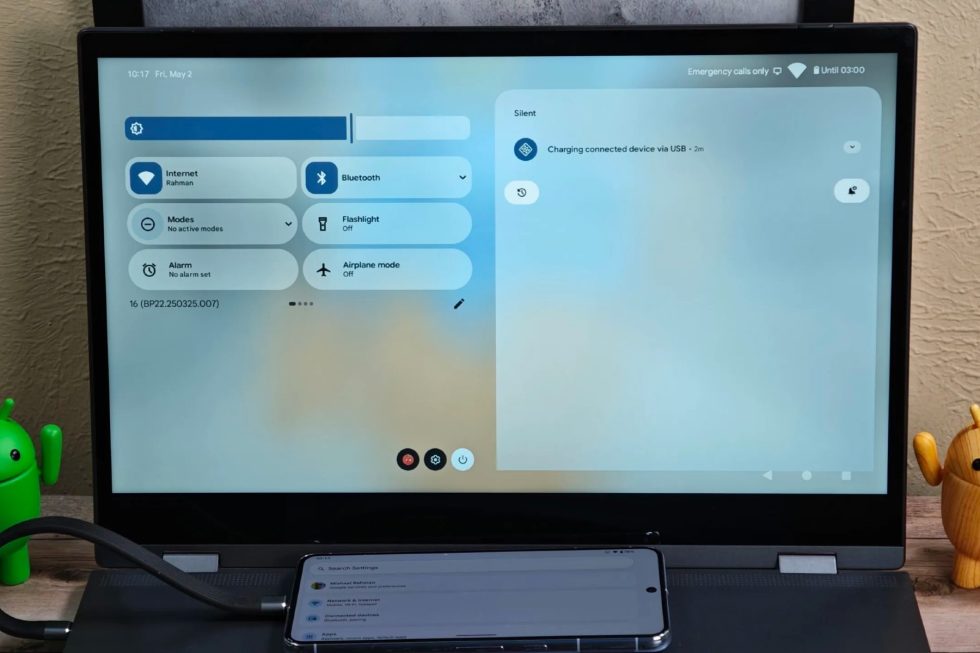Why Don't Middleware Attributes Appear in Derived Loggers?
Introduction In the world of Go, logging plays a crucial role in monitoring and diagnosing applications, especially when developing microservices or gRPC applications. Using Go's log/slog package, you can create a custom middleware handler like ContextHandler to capture context-scoped attributes such as session_id. However, a peculiar behavior arises when derived loggers via the .With() method fail to consistently carry over these attributes. Let’s delve into why this might happen and how to ensure that your logging system remains robust and reliable. Understanding the Middleware and Its Functionality In our example, we constructed a ContextHandler that enriches log records with attributes residing in the request context. This middleware modifies the log record by accessing session_id from the context and adding it to the log attributes. The essential function of this middleware is to ensure that every log entry during a request lifecycle is tagged with relevant session data, yet this process faces hurdles with derived loggers. The Middleware Code Here’s a refresher on how we've structured the ContextHandler: // ContextHandler middleware type ContextHandler struct { slog.Handler } func NewContextHandler(handler slog.Handler) *ContextHandler { return &ContextHandler{Handler: handler} } func (h *ContextHandler) Handle(ctx context.Context, r slog.Record) error { // Example: Get session ID from context if sessionID, ok := contextkeys.GetSessionID(ctx); ok { r.AddAttrs(slog.String("session_id", sessionID)) // Add attribute to record } // Pass record to the next handler return h.Handler.Handle(ctx, r) } When you create an instance of slog.Logger, this handler is attached, allowing you to log messages with session context during request handling. The Issue with Derived Loggers The Code That Doesn’t Work Consider the following piece of code inside the SomeMethod: // Inside handler method func (h *AuthHandler) SomeMethod(ctx context.Context, /* ... */) { const op = "Handler.SomeMethod" // Create derived logger log := h.logger.With(slog.String("op", op)) // ... log.InfoContext(ctx, "Operation successful") // Output includes "op=Handler.SomeMethod" BUT NOT "session_id=xyz" } Here, you create a new logger instance log using h.logger.With(). Although the operation context is successfully logged with its own attribute (op), the session_id doesn't appear. Why Does This Happen? The core of the problem lies in how slog handles log attributes with derived loggers. When a logger is derived using .With(), it creates a new logger instance that may not inherit all context attributes from its parent, particularly those added dynamically through middleware. Typically, the .With() method merely adds persistent static attributes to the logger instance but doesn’t inherently fetch context-scoped attributes set during the middleware processing. One possible reason is that the Handle method in the ContextHandler is intended for handling context directly during the logging operation and may not integrate seamlessly when triggering a method on a derived logger. Recommended Solutions 1. Avoid Overusing Derived Loggers To ensure a consistent flow of attributes, consider passing the required context directly rather than generating derived loggers mid-way through handling. Use the base logger tied to the ContextHandler directly where possible. 2. Manually Propagate Attributes If derived loggers are necessary in certain situations, ensure that you manually propagate essential attributes directly from the context. Here's an adjusted version of your logging logic: // Inside handler method func (h *AuthHandler) SomeMethod(ctx context.Context, /* ... */) { const op = "Handler.SomeMethod" // Create derived logger log := h.logger.With(slog.String("op", op)) // Check for session_id in context if sessionID, ok := contextkeys.GetSessionID(ctx); ok { log = log.With(slog.String("session_id", sessionID)) } log.InfoContext(ctx, "Operation successful") } This ensures that regardless of the logger scope, the session_id will always be included in the logs whenever applicable. 3. Explore Enhanced Logger Designs Consider implementing interfaces that abstract your logger further to always include necessary context attributes. For instance, designing a logger that necessarily merges or channels attributes before logging can mitigate scope inconsistencies. Frequently Asked Questions Q: Can middleware be used alongside any logger? A: Yes, middleware can theoretically work with any logger, but adoption may depend on the logger’s support for context. Q: How can I troubleshoot missing attributes? A: To diagnose missing attributes, examine the middleware configuration and the logger instance scope where you apply .With() methods. Q: Are there performance implications with using middleware extensively? A: Using middleware can slightly

Introduction
In the world of Go, logging plays a crucial role in monitoring and diagnosing applications, especially when developing microservices or gRPC applications. Using Go's log/slog package, you can create a custom middleware handler like ContextHandler to capture context-scoped attributes such as session_id. However, a peculiar behavior arises when derived loggers via the .With() method fail to consistently carry over these attributes. Let’s delve into why this might happen and how to ensure that your logging system remains robust and reliable.
Understanding the Middleware and Its Functionality
In our example, we constructed a ContextHandler that enriches log records with attributes residing in the request context. This middleware modifies the log record by accessing session_id from the context and adding it to the log attributes. The essential function of this middleware is to ensure that every log entry during a request lifecycle is tagged with relevant session data, yet this process faces hurdles with derived loggers.
The Middleware Code
Here’s a refresher on how we've structured the ContextHandler:
// ContextHandler middleware
type ContextHandler struct {
slog.Handler
}
func NewContextHandler(handler slog.Handler) *ContextHandler {
return &ContextHandler{Handler: handler}
}
func (h *ContextHandler) Handle(ctx context.Context, r slog.Record) error {
// Example: Get session ID from context
if sessionID, ok := contextkeys.GetSessionID(ctx); ok {
r.AddAttrs(slog.String("session_id", sessionID)) // Add attribute to record
}
// Pass record to the next handler
return h.Handler.Handle(ctx, r)
}
When you create an instance of slog.Logger, this handler is attached, allowing you to log messages with session context during request handling.
The Issue with Derived Loggers
The Code That Doesn’t Work
Consider the following piece of code inside the SomeMethod:
// Inside handler method
func (h *AuthHandler) SomeMethod(ctx context.Context, /* ... */) {
const op = "Handler.SomeMethod"
// Create derived logger
log := h.logger.With(slog.String("op", op))
// ...
log.InfoContext(ctx, "Operation successful")
// Output includes "op=Handler.SomeMethod" BUT NOT "session_id=xyz"
}
Here, you create a new logger instance log using h.logger.With(). Although the operation context is successfully logged with its own attribute (op), the session_id doesn't appear.
Why Does This Happen?
The core of the problem lies in how slog handles log attributes with derived loggers. When a logger is derived using .With(), it creates a new logger instance that may not inherit all context attributes from its parent, particularly those added dynamically through middleware. Typically, the .With() method merely adds persistent static attributes to the logger instance but doesn’t inherently fetch context-scoped attributes set during the middleware processing.
One possible reason is that the Handle method in the ContextHandler is intended for handling context directly during the logging operation and may not integrate seamlessly when triggering a method on a derived logger.
Recommended Solutions
1. Avoid Overusing Derived Loggers
To ensure a consistent flow of attributes, consider passing the required context directly rather than generating derived loggers mid-way through handling. Use the base logger tied to the ContextHandler directly where possible.
2. Manually Propagate Attributes
If derived loggers are necessary in certain situations, ensure that you manually propagate essential attributes directly from the context. Here's an adjusted version of your logging logic:
// Inside handler method
func (h *AuthHandler) SomeMethod(ctx context.Context, /* ... */) {
const op = "Handler.SomeMethod"
// Create derived logger
log := h.logger.With(slog.String("op", op))
// Check for session_id in context
if sessionID, ok := contextkeys.GetSessionID(ctx); ok {
log = log.With(slog.String("session_id", sessionID))
}
log.InfoContext(ctx, "Operation successful")
}
This ensures that regardless of the logger scope, the session_id will always be included in the logs whenever applicable.
3. Explore Enhanced Logger Designs
Consider implementing interfaces that abstract your logger further to always include necessary context attributes. For instance, designing a logger that necessarily merges or channels attributes before logging can mitigate scope inconsistencies.
Frequently Asked Questions
Q: Can middleware be used alongside any logger?
A: Yes, middleware can theoretically work with any logger, but adoption may depend on the logger’s support for context.
Q: How can I troubleshoot missing attributes?
A: To diagnose missing attributes, examine the middleware configuration and the logger instance scope where you apply .With() methods.
Q: Are there performance implications with using middleware extensively?
A: Using middleware can slightly augment the processing time due to additional logic during logging, so benchmark operations if logging volume is high.
Conclusion
In conclusion, while using middleware in Go's log/slog package can immensely help manage context-scoped logging attributes, care must be taken with logger derivation. By adjusting how derived loggers handle context attributes and ensuring critical information from middleware is propagated properly, you can maintain reliable and informative logging across your application. This approach not only improves the utility of logs but also enriches debugging processes, especially in a distributed system like gRPC services.

 Stolen 884,000 Credit Card Details on 13 Million Clicks from Users Worldwide.webp?#)







































































![Apple Shares Official Teaser for 'Highest 2 Lowest' Starring Denzel Washington [Video]](https://www.iclarified.com/images/news/97221/97221/97221-640.jpg)

![New Powerbeats Pro 2 Wireless Earbuds On Sale for $199.95 [Lowest Price Ever]](https://www.iclarified.com/images/news/97217/97217/97217-640.jpg)











![Chrome 136 tones down some Dynamic Color on Android [U]](https://i0.wp.com/9to5google.com/wp-content/uploads/sites/4/2023/03/google-chrome-logo-4.jpg?resize=1200%2C628&quality=82&strip=all&ssl=1)






























































































































































































































![[The AI Show Episode 145]: OpenAI Releases o3 and o4-mini, AI Is Causing “Quiet Layoffs,” Executive Order on Youth AI Education & GPT-4o’s Controversial Update](https://www.marketingaiinstitute.com/hubfs/ep%20145%20cover.png)








































































































































































































































































